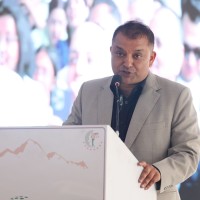UN Warns of ‘Unsettling’ Global Development Slowdown in 2024

Global human development experienced a surprising and “unsettling” slowdown in 2024, the United Nations warned Tuesday, raising alarm just as the momentum from the post-pandemic recovery appeared to be fading.
According to the United Nations Development Programme (UNDP)’s annual Human Development Report, progress measured through the Human Development Index (HDI)—which tracks global advances in living standards, health, and education—stalled significantly last year. This deceleration began well before U.S. President Donald Trump made sweeping cuts to international aid.
“If this unsettling trend becomes the new normal, the goal of reaching significant human development milestones by 2030 could be delayed by decades,” said UNDP Administrator Achim Steiner. “That would make our world more insecure, more divided, and more vulnerable to both economic and ecological shocks.”
The slowdown could be further aggravated by major aid reductions from donor countries, particularly the United States. President Trump has slashed funding for numerous programs and effectively dismantled USAID, the country's primary development agency.
“If wealthy countries pull back, this will inevitably affect economies and societies around the globe,” Steiner told AFP. “Within a year or two, we may see this reflected in lower life expectancy, falling incomes, and increased conflict.”
While the UNDP is still investigating the root causes of the 2024 slowdown, preliminary analysis suggests declining life expectancy—possibly linked to lingering effects of COVID-19 or the increasing number of armed conflicts worldwide—played a key role.
Despite the bleak outlook, the report highlights a potential opportunity: artificial intelligence. According to Steiner, AI could revolutionize development trajectories if deployed equitably and ethically.
“AI might be the single most powerful tool to reshape development paths for both rich and poor countries,” Steiner noted. “But it depends on how we design and use it.”
The report cautions that unequal access to AI, along with cultural and systemic biases in its design, could worsen global inequalities. However, Steiner insisted that these risks can be mitigated.
“We can and must design these tools to reduce those risks,” he said, citing medical research as one area where AI could have profound benefits.
In its closing message, the UNDP emphasized the human element of technological change:
“Technology is about people—not just things. Beneath the razzle-dazzle of invention lie choices whose consequences will echo for generations. The future is in our hands.”











.png)



तपाईको प्रतिक्रिया दिनुहोस